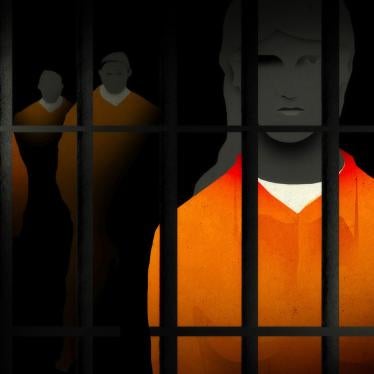Whatever one thinks of the war to topple Saddam Hussein, the issue of justice for the crimes of his regime is now coming to the fore. In one of its first acts, the new Iraqi Governing Council announced the formation of a commission to establish a tribunal to bring Saddam and his henchmen to justice. Sadly, this is the wrong approach.
The mass graves being unearthed today in Iraq bespeak the horrors of his rule. Among the occupants of these graves are 100,000 Kurdish men and boys machine-gunned to death during the 1988 Anfal genocide; 30,000 Shiites and Kurds slaughtered after the 1991 uprising; other Shiites killed during the 1980s because of their perceived sympathy for Iran; so-called Marsh Arabs, killed as the Iraqi government drained the marshes and destroyed a culture that had thrived for centuries; and many individual Iraqis of all faiths and ethnicities who were singled out, their lives ended, for real or perceived opposition to the regime.
Whatever one thinks of the war to topple Saddam Hussein, the issue of justice for the crimes of his regime is now coming to the fore. In one of its first acts, the new Iraqi Governing Council announced the formation of a commission to establish a tribunal to bring Saddam and his henchmen to justice. Sadly, this is the wrong approach.
At a certain level, one can applaud the move. Contrast it with Afghanistan, for example, where the crimes of the Taliban and its predecessors have been swept under the rug because of fears that prosecution would lead to many of the people behind the government of Hamid Karzai.
However, the approach of the Governing Council — taking its cue from Washington's preference of allowing Iraqis to try their own persecutors — is unlikely to produce sound prosecutions or fair trials. It reflects less a determination to see justice done than a fear of bucking Washington's ideological jihad against any form of international justice.
As we know from Rwanda and former Yugoslavia, prosecutions of genocide or crimes against humanity are enormously complex. Volumes of official documents must be amassed, sensitive forensic evidence must be collected from mass graves, hundreds of witnesses from among survivors and accomplices must be presented, and scrupulous attention paid to the requirements of due process. To avoid being perceived as show trials or “victor's justice,” these prosecutions, and the resulting trials, demand highly experienced jurists of unquestioned integrity.
Saddam's brutal and arbitrary justice system can hardly be expected to have produced such jurists. Prosecutions were typically based on confessions, often induced by torture. Serious criminal investigations were virtually unheard of. Even among Iraqi exiles, it will be difficult to find jurists with the right combination of skills and emotional distance from the former dictatorship. And the problem will only be compounded if the Governing Council selects the judges and prosecutor, since they will be seen as Washington's designees rather than independent dispensers of justice.
An internationally led tribunal would be a far better option for Iraq, whether a fully international tribunal as the ones established for Rwanda and former Yugoslavia or a mixed national-international tribunal as the one set up for Sierra Leone. Because its personnel would be selected by the United Nations rather than by Washington's surrogates, an internationally led tribunal is more likely to be seen as legitimate. And because it can draw from a global pool of talent, it is better able to secure experienced and fair-minded jurists.
At minimum, the UN Security Council should establish an international commission of experts to decide on the best type of tribunal for Iraq. Such a commission could consult with large numbers of Iraqis as well as experienced war-crimes prosecutors from around the world about the justice mechanism that would best serve Iraq's needs. As similar commissions did in Rwanda and former Yugoslavia, it could also begin the urgent task of preserving evidence — both the internal documents that Saddam's government meticulously kept, and the mass graves that U.S. troops are now allowing to be despoiled.
Washington is adamantly opposed to such an approach, which probably explains the decision taken by the Governing Council. But Washington's opposition reflects its ideology, not its concern for the Iraqi people. The Bush administration calculates that a tribunal of Iraqis selected by its hand-picked Council will be easier to control, more likely to impose the death penalty, and, most important, less likely to indirectly enhance the legitimacy of the detested International Criminal Court.
Canada, whose diplomat Phillippe Kirsch was recently chosen to preside over the International Criminal Court, should speak for Saddam's victims and oppose this U.S. approach. The Iraqi people, in their longstanding quest for a fair and independent justice system, deserve no less.






